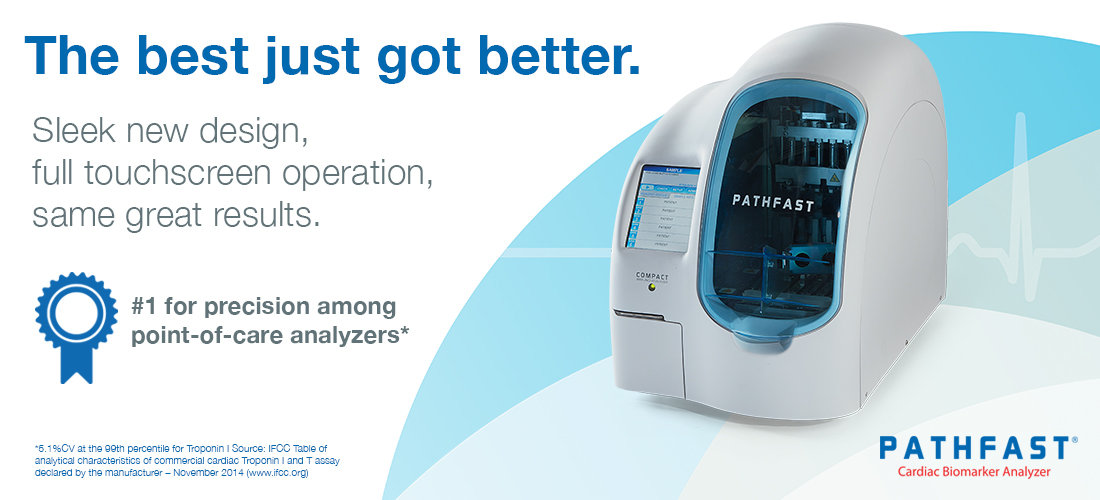By Pathfast
02/21/2018 Cardiac markers play a vital role in the detection of Acute Myocardial Infarction (AMI) when the patient’s history and ECG are non-diagnostic or vague. Diagnosing AMI early (i.e. within 6 hours after symptoms begin) is not easy as some time must lapse after symptom onset for cardiac markers to exceed values above the reference point. The sensitivity of cardiac markers for the early diagnosis of AMI is influenced by the factors mentioned below:
Time of presentation: The earlier the presentation after symptoms begin, the more the likelihood that the cardiac marker will show a relatively increased sensitivity like myoglobin and lesser sensitivity like CK-MB or cTnI. Myoglobin is released very early in the course of AMI, and CK-MB or cTnI is released a little later. A delayed presentation is likely to have the opposite effect. Therefore, the onset of symptoms should be considered when commenting on the sensitivity of the cardiac markers for the early diagnosis of AMI.
Size of infarct: The bigger the infarct, the greater the quantity of cardiac markers released. This leads to improved sensitivity of the cardiac marker.
Selection criteria and prior probability of acute myocardial infarction:
Selecting people or patients with a high possibility of AMI, such as those admitted to the CCU, can influence the sensitivity of a cardiac marker.
Treatment: Treatment can have an influence on the sensitivity of the marker. For example, patients who have been successfully thrombolysed show a greater sensitivity to the cardiac markers than those who were not successfully reperfused.
Diagnostic threshold: The selection of an appropriate diagnostic threshold requires careful consideration of concentrations seen in the normal and disease-free population and those seen in diseased populations. If the cut-off concentration used is low, the sensitivity is improved at the expense of specificity unless the marker is 100% cardiac specific, and only present in diseased populations.
Kinetic factors: The molecular size of the marker, the biological section of the marker, the volume of distribution, and whether the marker is released directly into the blood or cleared by the lymphatic system, can all influence plasma concentration. Markers that have a low molecular weight show better early sensitivity than larger molecules.
PATHFAST – Cardiac Biomarker AnalyzerPATHFAST determines the quantity of Troponin I, CK-MB, and Myglobin from both whole blood and plasma samples, providing results within minutes, and facilitating critical care decisions for patients with AMI. Measurement of cardiac Troponin I is used an as an aid in the diagnosis of AMI. Troponin I is released rapidly in blood circulation after the onset of AMI.
Contact UsPathfast is number 1 for precision among point-of-care analyzers. Consider Pathfast Cardiac Biomarker Analyzer for early detection of AMI and for better quality cardiac care. Call 800-431-2123 or email tpucci@polymedco.com.

PATHFAST is an easy to use, bench-top chemiluminescent immunoassay analyzer providing affordable, core-lab quality results from whole blood samples in under 17 minutes. With the flexibility to run up to six tests simultaneously, and results that are unaffected by hemolysis, PATHFAST ensures accurate…
Pathfast Cardiac Biomarker Analyzer
Cardiac Markers and Early Detection of Acute Myocardial Infarction



